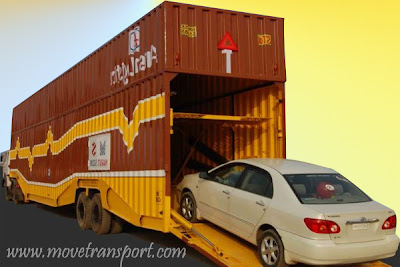
If you're facing the intimidating
prospect of uprooting your household and transporting your belongings to a new house,
you'll need all the help you can get. Having a few tips for a winning move to
get you off to a good start.
Make sure you're hiring a genuine
mover and not a dealer. A broker will simply hire a carrier to emote your
goods, without ever taking control of it or being liable if it is lost or injured.
Schedule your move so you can be there
both when your goods are picked up and when they're delivered.
Your mover is legally necessary to
provide you with the leaflet Your Rights and Responsibilities When You Move.
Avoid any mover who doesn't offer the leaflet, because it explains not only the
things the mover will ask you to sign, but also your rights if the mover compensation
or loses your property.
Ask to see your mover's section of
Transportation licensing certificate and determine that it’s current. If you
are moving to another state, confirm that your mover also has a FMCSA (Federal
Motor Carrier Safety Administration) license and sufficient liability
insurance. Find out what your homeowner's insurance will cover and rise your reporting
if necessary.
Interview and get written estimates
from at least three movers, comparing the fees for services covered by each.
Also get written order for service lists which designate not only each service,
but your unplanned and delivery dates. Ask how you will be able to reach each
mover previous to, during, and following your move.
Be located at your old home on
moving day. Don't allow your mover to load your possessions without getting a
copy of the bill of lading, including your agreement and a receipt for the
items you are having shipped. Get a copy of the written record of your items,
and if you don't agree with the account of your items and their condition,
settle the dispute before the touching starts.
Make sure the mover
has both accurate instructions to your new home and a way to contact you throughout
the move.

















